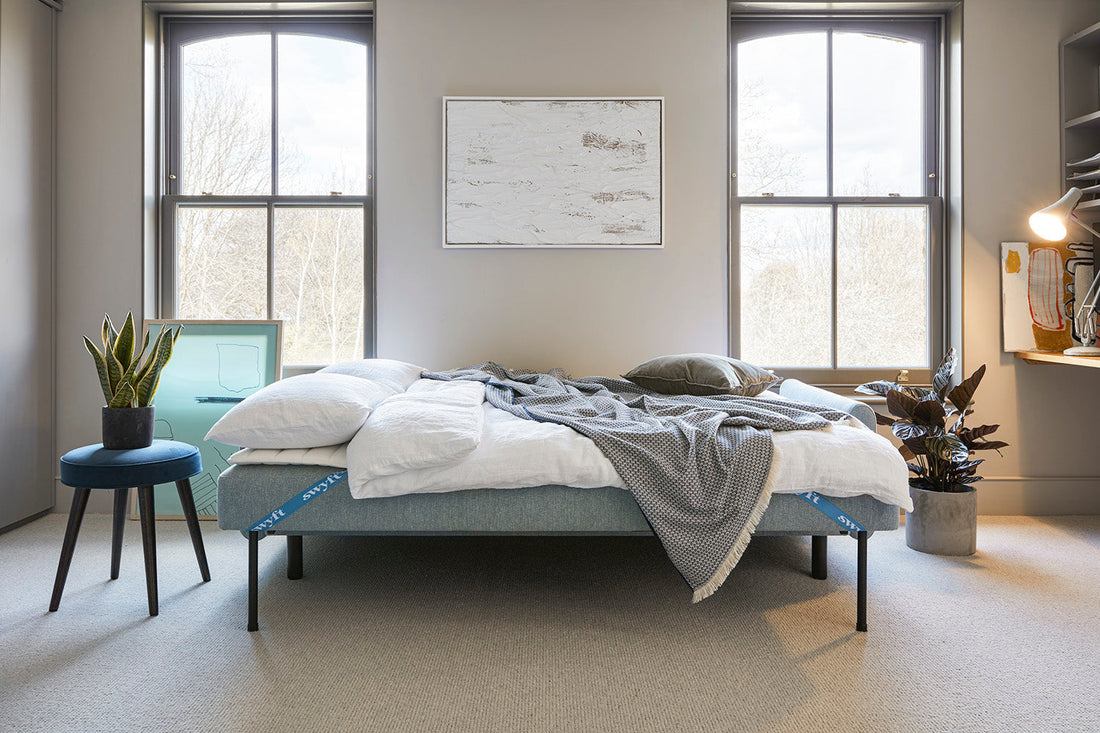How did you sleep? Expert shares tips for a restless night's sleep

How did you sleep? Expert shares tips for a restless night's sleep
In honour of the clocks going back (October 31st), we thought it'd be fitting to get a better understanding of sleep. So, we asked acupuncturist and sleep expert, Joanna Ellner, to share insights on how the body affects sleep patterns and the changes we can make to our lifestyle to guarantee a good night's sleep.

How did you sleep last night? If the answer is somewhere between ‘pretty badly’ and ‘I didn’t’, you’re not alone. A recent study reported a 37% increase in the rates of clinical insomnia by the peak of the first Covid-wave*. As a practitioner friend put it recently, it’s ‘the pandemic within a pandemic’. And yet, despite its vast and indiscriminate impact, we know relatively little about the intricacies of insomnia from a biomedical standpoint. Some argue it’s a distinctly physiological affliction, others insist it’s wholly psychological. Traditional Chinese Medicine, with its centuries-old diagnostic rubric, recognises both facets in a truly holistic approach that is only now gaining ground in the West, within integrative medicine circles.
Beyond merely the number of hours you clock-up each night, your acupuncture practitioner will also ask where your mind travels in the twilight hours, whether your body feels warm, if it sweats, if your dreams are profoundly vivid, or indeed if you ever dream at all. Each seemingly inconsequential detail offers another clue, another brushstroke on the landscape, to understanding what your unique body – psyche and soma - needs to restore its own internal balance.
Perhaps you have no problem drifting off but have a propensity to wake at the sound of a pin drop. This could indicate a heart blood and spleen qi imbalance, a pattern we commonly see in clinic among over-worked, worry-weary urbanites. You may struggle to fall asleep, your mouth dry, your feet hot, feeling restless and agitated. That might suggest that your kidney yin could do with a bit of nourishment. Palpitations (these can present as simply the awareness of one’s heartbeat) or night sweats? Well, then it’s a likely that I’d be treating your heart meridian – the organ in TCM that’s inextricably linked with sleep, given its significant role of housing the shen, or ‘spirit’.
The inner essence that exists in all of us, shen is that which is spiritual, ethereal and other-worldly. It is a soulful, undulating, vibrancy that adds a glint to the eyes and a glow to the skin. And so, if there is agitation, too much heat, too little blood, or too little yin, the shen becomes disturbed, and sleep becomes an elusive stranger.
One thing that biomedicine and TCM agree upon? Stimulants equal bad. Coffee, alcohol, virtually any consumable substance in excess serves to tangle and stagnate the qi and generate internal heat. And yes, we count phones as a stimulus now, too. Creating the optimum conditions for a restful night’s sleep needn’t require a life of absolute virtue, rather, some considered shifts in your behaviours and environment can engender the shift that’s required. There’s no one size that fits all.
*Source: Université Laval, Institut Universitaire en Santé Mentale de Québec, Canada





